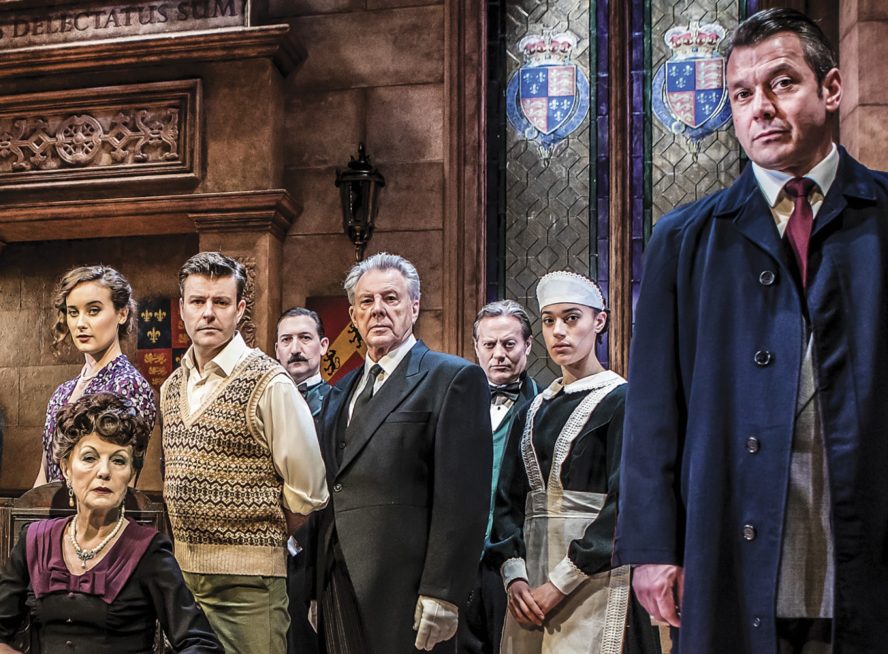
There was a time when this kind of Murder Mystery was the stock-in-trade of weekly repertory and ‘number two’ tours. Stock themes and formulaic plots together with stereotypical characters allowed practitioners of the genre to knock them out with ease and regularity. Usually set in the home counties (enabling folk to ‘nip up to’ or ‘beetle down from’ town) and in the kind of surroundings which the audience (‘one half’) supposed to be the natural habitat of ‘the other half’. A box full of red herrings and a scattering of clues designed to elicit some ‘ohs’ and ‘aahs’ at the dénouement completed the package.
Back in the day, before well-known actors were ‘celebrities’, a producer with a bit of clout could persuade a star to risk their reputation on the road for six weeks. (Certainly in more recent times this was the norm as any longer and holiday money would have to be paid.) Prior to the rise in popularity and ubiquity of TV the summer tour would be the only means whereby the provinces could get a good gawp at the folk they had read about or perhaps seen at the (black and white) movies. One has heard of adverts in The Stage requiring an understudy for this or that role, ‘Must be off-spin bowler’, as fitting in a bit of cricket or perhaps golf was one way to fend off the boredom of a summer season tour. These were the days before mass travel when the London theatres would often go dark owing to the fact that their audiences motored off to the South of France or other parts and there was no influx of tourists to take up the slack.
I mention all this just to let you know from whence this kind of thing sprang. That there is still an audience for such dated fare I think we can assume from the fact that Bill Kenwright, who didn’t get where he is today without knowing a thing or two about audiences, has backed this with his own company’s money. Certainly I went along with the expectation that the master of the genre, Edgar Wallace, would have something to teach us about suspense and intrigue. I was wrong.
Footmen drifted around like ghosts, people wandered on and off for no good reason. The set, a baronial hallway, pleasant enough to look at, had only one seat, in a downstage left niche, which meant that characters came on, said their piece then went off again. Poor Rula Lenska, who at least had a bit of stature, drifted on with a bee in her bonnet about family genes and passing on the line, only to be chased off by one or other of the lower orders who seemed to be moving in a kind of folk dance pattern around the stage.
I found myself longing for a French window for someone, (anyone!) to burst through and an inviting sofa for folk to fling themselves onto. Ben Nealon, permanently ‘popping out to the stables’, managed to cause the odd ripple as the somewhat oikish son and heir and Rosie Thomson was everything you’d want in a stage maid. Philip Lowrie amused us as the kind of butler who would have Americans thanking god for the revolution with what were (ironically unfounded) thoughts about the natural order of things as expressed by the class system. Gray O’Brien tried his best to shake some life into the inspector, but sadly there was nothing there to shake. Nobody was bad, it was just a case of lacking all the things needed – engaging characters, suspense, pace, intrigue. ★★☆☆☆ Graham Wyles 15th May 2018

